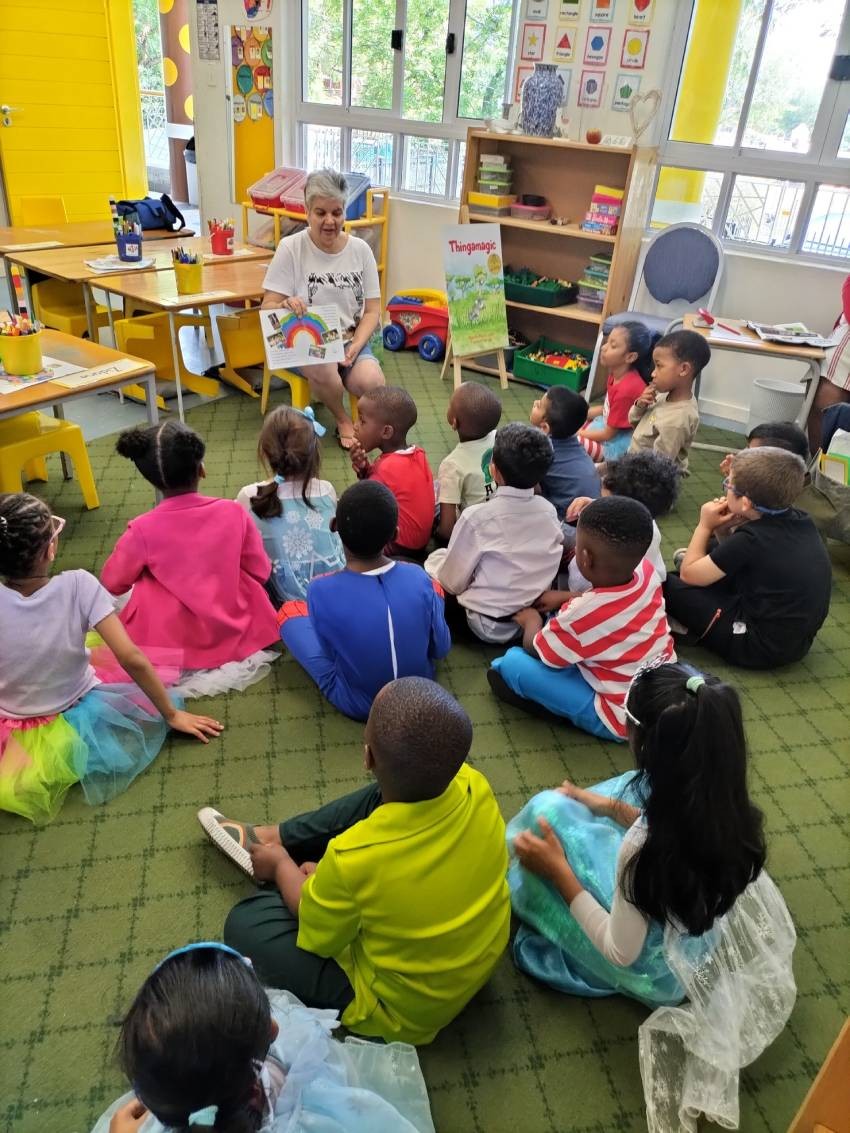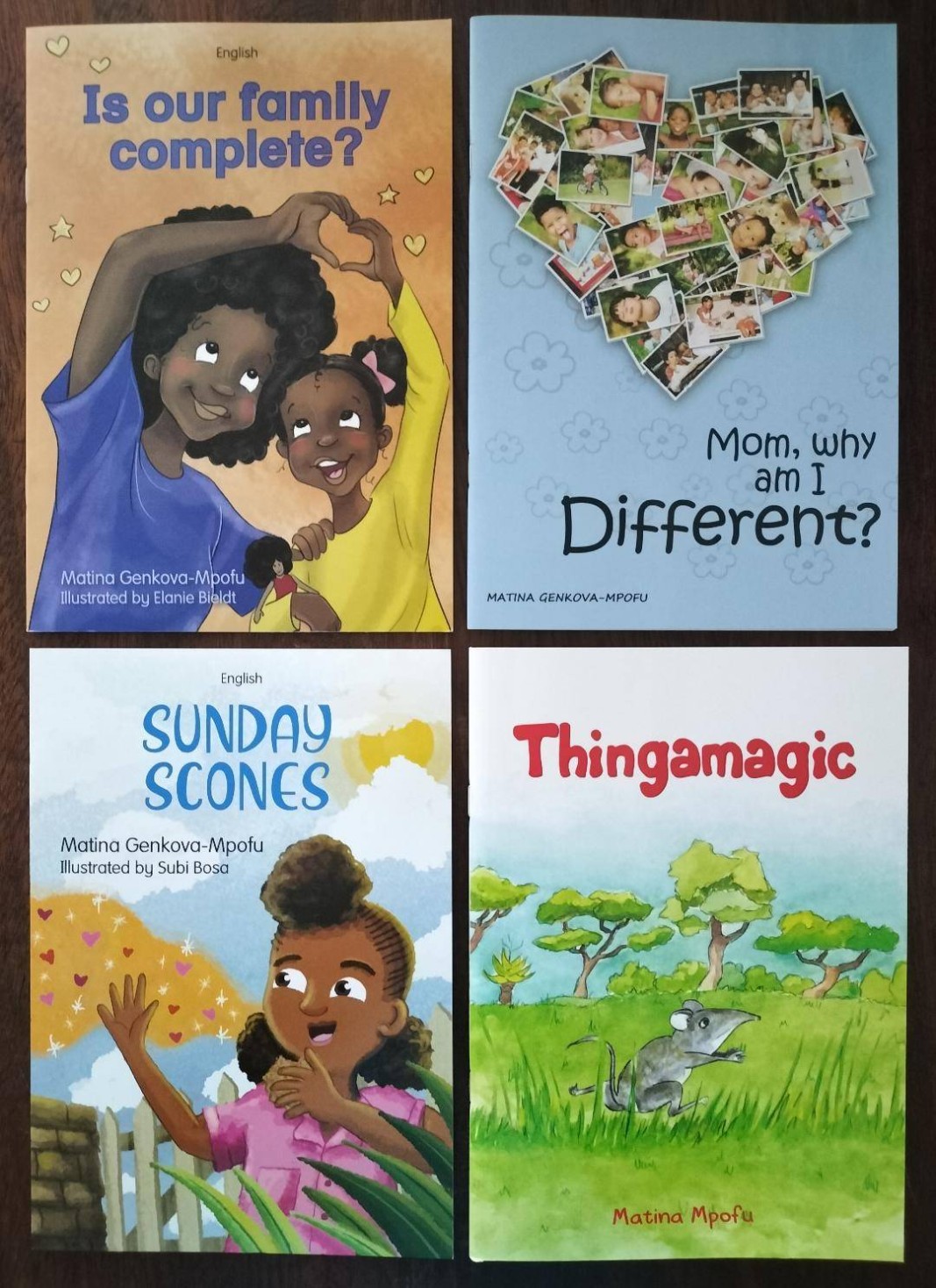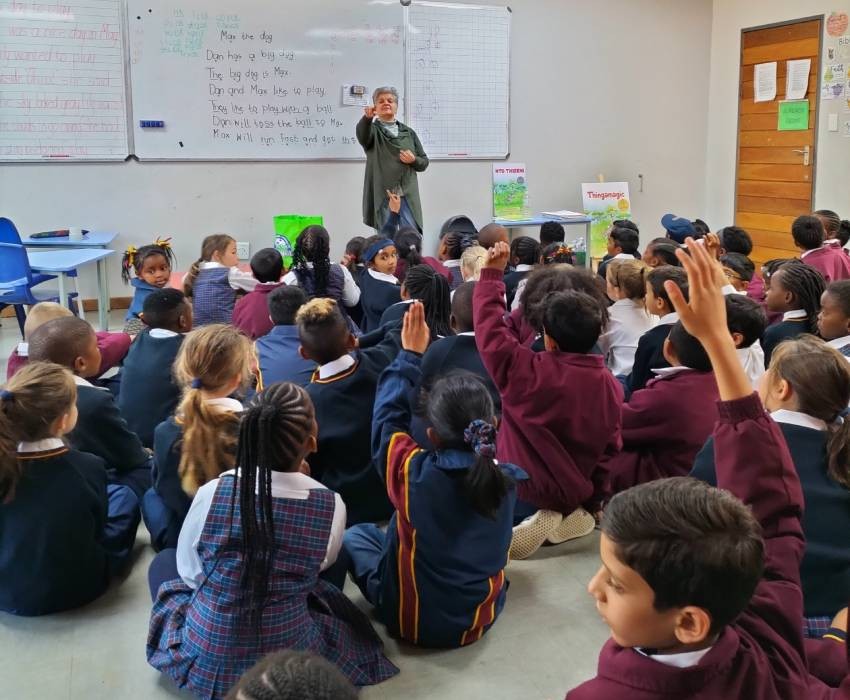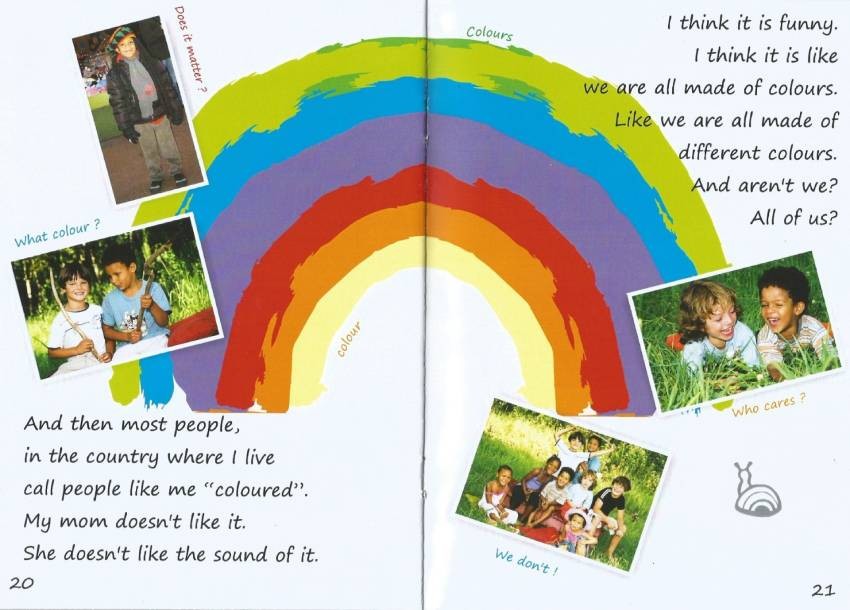Today we talk to a woman from Bulgaria whose love took her to another country on another continent. Her husband who is half-Zimbabwean, graduated journalism in Bulgaria and the two left for Zimbabwe, and later moved to South Africa. And there, she discovered a talent she didn’t even know she had, and found the mission of her life.
Her name is Matina Genkova-Mpofu and she is the author of six books for children which she wrote in English. One of them – Thingamagic – was nominated for the 2021 South African Literary Awards. The book is about endangered animals but it also brings forth the idea that however different we may all be it is better to live in peace and love. The book has been translated from English to Zulu, and this Zulu version was also nominated - for translation. But how did she start writing at all?
“I never thought I would start writing. Of the people around me my husband was a man of letters, I was the person of logic and mathematics. So, it was a shock to us both when I started writing,” Matina says.
As it turned out, the key to talent is the love of a mother. 
“When our son was about 3 (because he had started asking questions even before he could talk very well) I was thinking to myself that I must be prepared to explain to him why he looks different from me, from his father because he is from a mixed marriage. I started looking for books in libraries, in book stores and I couldn’t find any that could give any explanation on the matter. That was when an idea started spinning around in my head – if I can’t find a book like that why don’t I try writing one. At first I didn’t even know how to begin, I had no idea because it is very difficult to explain to a small child why they look so different from either of their parents.”
Inspiration came to her on an early morning on St. Valentine’s Day. And so the first book by Matina Genkova-Mpofu came into being “Mom, why am I different?”, in which she explains as a “fun experiment” that even members of one family can look different. The answer is given through a drink children love – it is the same as when you dissolve cocoa in water, you get a drink that is brown, and if we add milk you get hot chocolate! Mmm…
“The focus in the book is not so much on different skin colours as on the fact that it does not matter what you look like, what matters is for you to lovMatina Genkova-Mpofu e your parents and for your parents to love you, and also that we are all different and unique, each and every one of us. There is no other person like that in the world,” Matina says. “Mom, why am I different?” has turned for her into a new beginning. The book written with so much love has been a big success and has been re-released.
Africa bewitched Matina from the start – the people, the nature, the sunsets: “They have magnificent sunsets. You can see the sun moving and it sets in the space of about 15 minutes!” Life there has taught her you need to focus on the things that really matter and not bother about things that are insignificant. Asked about adapting to a culture that is totally different she gives an answer that may sound surprising: “Many of the cultures have many, many things in common. More than we all think.”
Some of the things that made an impression on her at the beginning are how long the local people greet one another, for example early in the morning. “Because that can go on for half an hour or more depending on how many people are there. Not just a simple “Good morning”. Each person says “Good morning” to the others, then goes on to ask them whether they are well, then whether they got a good night’s sleep, and that can take quite a while. It looked very strange to me,” she says. 
Even though she has been living away from Bulgaria for years, Matina Genkova-Mpofu says she has not forgotten her country of birth and returns to it as often as she can to see friends and relatives. There is a very robust, very active Bulgarian community in South Africa, united around a Bulgarian club, where they regularly meet to see one another, to speak Bulgarian while their children attend the Bulgarian Sunday school Sluncho. There, they can take children’s books home to read.

“To my mind computers, tablets, telephones take up too much of our lives. Nothing can take the place of the feeling when you hold a book in your hands, the way it smells. And it is very important for young children to have books read to them, it doesn’t matter in what language. I would like to see that continue. Tablets, telephone, they cannot replace fiction entirely, the kind of fiction we were familiar with as children,” said, in an interview with Radio Bulgaria, Matina Genkova-Mpofu, the lady who uses her talent as a writer to give answers to the difficult questions children ask.
Translated and posted by Milena Daynova
Photos courtesy of Matina Genkova-Mpofu
The joy you see in the eyes of the people you have helped cannot be described in words, it must be experienced!" This was shared by Veneta Terzieva and Valentin Grigorov on Bulgaria's National Awakeners' Day. The two have been helping other Bulgarians in..
On October 24, the Honorary Consulate of Bulgaria in Norway was opened with an official ceremony and a festive concert in the Norwegian city of Stavanger. The first honorary consul is pianist Kiril Kutin, who has established himself as an authoritative..
There are more than 80,000 Bulgarians living in Moldova, with a concentration in the southern part of the country. Most are settled in the town of Taraclia and its surrounding region. One of the key institutions established by the Bulgarian community is..

+359 2 9336 661
